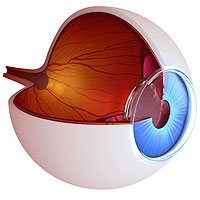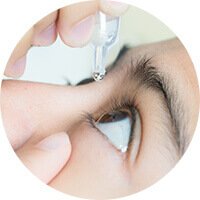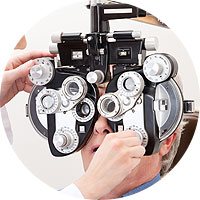The retina is the light-sensing tissue that resides in the back of your eye. It is responsible for relaying images to your brain. Without a healthy retina, you can’t read, drive, or see fine details. A retinal disorder or disease affects this very important tissue, which, in turn, can affect vision to the point of blindness.
Common retinal conditions include floaters, macular degeneration, diabetic eye disease, retinal detachment, and retinitis pigmentosa. There are other issues that can occur, but these conditions are some of the most common and serious that a person can experience.
Floaters
If you notice spots in your vision, then you have floaters. They can be age-related, but they can also occur in cases of severe nearsightedness. The jelly substance the eye is made of becomes more liquid and small clumps cast a shadow on the retina.
However, floaters can also be the result of a torn retina. If the tear isn’t repaired, then it can lead to retinal detachment. This is due to fluid accumulating behind the retina, causing it to separate from the eye.
Macular Degeneration
Macular degeneration is an age-related condition of the retina that causes central vision loss. It is very common in individuals over the age of 55, with approximately 10 million people in the United States suffering from the condition.
The symptoms tend to involve blurry central vision, warped straight lines, or difficulty focusing on fine details. Blind spots can develop as the condition worsens. Fortunately, there are treatments, such as an antioxidant supplement that can slow the progression, blocking unhealthy blood vessel development, and several others.
Diabetic Eye Disease
Those with diabetes are more susceptible to retinal damage. There are many people throughout Scranton and Wilkes-Barre, Pennsylvania, suffering from diabetes, and their eyes are paying a price. They notice blurry vision, double vision, floaters or dark spots, pressure or pain in at least one eye, trouble with peripheral vision, flashing lights, or rings.
The good news is that laser surgery is a treatment that can help a person suffering from diabetic eye disease. It is also important to note that diabetics are also at increased risk of glaucoma and cataracts.
Retinal Detachment
As mentioned earlier, retinal detachment can occur when too much fluid accumulates behind the retina, causing separation. However, there are other risk factors that increase the chances of retinal detachment. They are:
- Extreme nearsightedness
- Previous retinal detachment in the other eye
- Genetic predisposition
- Previous cataract surgery
- The presence of other eye disorders
- Eye injury
The presence of floaters indicates that retinal detachment may be occurring. There may also be flashes in the eye. If the condition isn’t quickly treated, it can cause permanent vision loss. If you suddenly notice floaters or you have had them and they have increased, see your doctor immediately. Other symptoms include a decrease in vision or seeing a gray curtain in your field of vision.
Retinitis Pigmentosa
Retinitis pigmentosa describes genetic conditions that can cause retinal degeneration. Vision loss gradually declines as the rods and cones die. Leber’s congenital amaurosis, Usher syndrome, Bardet-Biedel syndrome, rod-cone disease, and Refsum disease are some examples of conditions that are classified as retinitis pigmentosa.
Usually, rods are affected first, and then the degeneration moves to the cones. One of the earliest symptoms is night blindness, but some people experience central vision loss or color blindness. Adolescents and young adults are especially vulnerable since this is an inherited condition.
If you notice any changes in your vision, it is very important to have your eyes checked as soon as possible. While some changes may be benign, others can indicate more serious conditions.
If you want to know more about retinal disorders, or if you would like to set up an eye exam, contact the Eye Care Specialists in Scranton or Wilkes-Barre today!

















